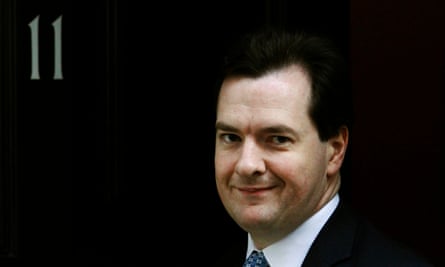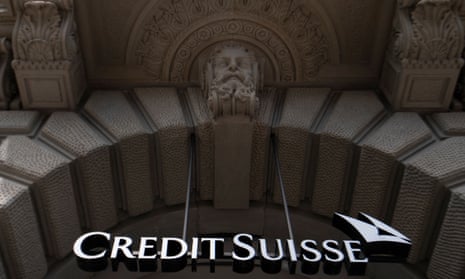How do the banks continue to get away with it? The latest revelations about Credit Suisse provide yet another glimpse into the corrosive nexus of banks, corporations, accountants, lawyers and financial intermediaries that enables the wealthy and political elites to profit from illicit practices.
The bank itself is no stranger to predatory practices. Since 2001 it has been fined at least 47 times by the US authorities and paid fines totalling $10.7bn. Since 2010, it has also been fined on at least six occasions by the UK’s Financial Conduct Authority (FCA) and paid fines totalling more than £300m. The fines have become just another cost of doing business, and are passed on to customers.
Credit Suisse is not alone. The roll of dishonour shown by the Panama Papers, Paradise Papers, Pandora Papers, HSBC leaks, Luxembourg leaks and others shows that virtually every major bank is involved in predatory practices. All these leaks have provoked a public debate – but have drawn a minimal response from governments.
Credit Suisse is authorised by the FCA, and the latest revelations ought to trigger an independent inquiry in its UK operations, especially as the bank is a repeat offender. However, the chances of that happening are low. The UK government is busy promoting deregulation and a culture of entrepreneurialism – and will not wish to highlight the darker side of this.
This culture is a major enabling factor in predatory practices. In the City of London, stealing a march on a competitor, at almost any price, to gain a financial advantage is considered to be a skill, while promotion, status and profits are linked with meeting business targets. In such a system any “deal” is acceptable as long as it is profitable.
The problem resides more in being caught than engaging in dishonourable or illegal activity. The smart business activity resides in constructing mechanisms through which benefits are derived from suspect activities while escaping any responsibility for their operations. Hence, a lot of attention is paid to building opaque structures and using financial experts to conceal nefarious practices. The UK Treasury has never been keen on investigating the organisational culture of banks, and predatory practices remain institutionalised.

The Credit Suisse leak once again shows that there is an elaborate labyrinth of structures in this world that is difficult to penetrate. The state can respond by promoting transparency and accountability, shutting down offending businesses and prosecuting their senior officials. However, the probability of this is low, as the political system has little independence from big business. Political parties are funded by corporate money and rarely bite the hand that funds them. They parade themselves as “business-friendly”. Thus, little attention is paid to cleaning up the banking sector, even though it is routinely implicated in scandals.
The threat of bankruptcy and regulatory action can discipline large banks and their executives, but that has largely been eliminated as the state has shown willingness to shower vast amount of moneys on the sector.
The 2007-8 crash revealed that the UK banks had engaged in reckless risk-taking and fraudulent practices. The state responded by dutifully handing out £1.1tn of cash and guarantees to bail out ailing banks. They were further propped up by the subsequent injection of £895bn of quantitative easing. Such policies have removed the threat of bankruptcy from major banks and emboldened them to engage in predatory practices. When profits are privatised and losses are socialised, there is little economic incentive to curb nefarious practices.
The regulatory environment can check predatory practices but is weak. In 2012, HSBC, a bank registered in the UK, was fined $1.9bn by the US authorities for money-laundering failures. HSBC “accepted responsibility for its criminal conduct and that of its employees”. It escaped prosecution by entering into a deferred prosecution agreement. There was no UK inquiry. A subsequent 2016 US report revealed that the British chancellor, George Osborne, and the financial services regulator intervened seemingly with the aim of protecting HSBC. Despite demands, there has been no ministerial statement to explain this intervention.
Perhaps we are beginning a new chapter. Last year, in a first for the FCA, NatWest was convicted for money laundering after it voluntarily pleaded guilty and paid a fine of £264m. This was not followed by prosecutions of any directors, whose remuneration was presumably augmented by profits from such illicit practices.
That said, last year NatWest was fined $35m by the US Department of Justice for “spoofing” – a type of market manipulation – and the press release referred to NatWest as “a repeat offender”. This did not prompt an investigation into the bank’s practices in the UK.
Overall, with the veneration of entrepreneurial culture and a compliant state, there is little immediate prospect of cleaning up the banking industry.
Prem Sikka is a member of the House of Lords, and an emeritus professor of accounting at the University of Essex and the University of Sheffield
